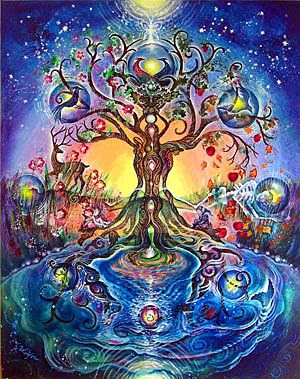Dear Integral Meditators,
To be a meditator means to get in touch with your natural happiness. The article below explains something of what I mean by this.
Yours in the spirit of natural happiness,
Toby
 Natural Happiness
Natural Happiness
I feel happy because…
A common tactic and one that I use myself for becoming happier is simply to reflect mindfully upon reasons why my life is good, on what I have achieved, on what I am enjoying, on what has gone right. If you keep a log of these types of things, either written or in just regularly in your head, then you are connecting to a form of happiness based upon the power of your rational, thinking, analytical mind.
I feel happy and so…
In meditation, one of the things we are aiming to develop the ability to do is to move our body-mind into a state of open relaxation that feels so good that, even if we had many reasons in the day to not be happy we would still naturally feel connected to happiness anyway.
This meditative form of happiness is a state of happiness that does not depend upon rational reasons, or the ticking of mental boxes. Rather it is a feeling that arises simply from sitting quietly, letting go and enjoying the process of enjoying relaxing deeply into a state of conscious awareness.
Relaxing into natural happiness
The other day I was travelling back from work with my head full of the troubles of the world; relationship doubts, money issues, business uncertainty, dissatisfaction with my circumstances and so on, you know what I mean right?
So instead of going directly home I went into the library, and sat down in the reading room. I determined just to sit down and relax for 30mins. For the first few minutes I paid attention to the physical fatigue in my muscles and the emotional turbulence that I was experiencing, just acknowledging them, giving them a bit of love and letting them go. Then I just sat still and relaxed, doing as little as possible, switching off my brain and mind and opening my heart space.
After 10minutes I started to feel ok. After 15 minutes I felt good. By the time I finished, technically I could still remember all the reasons that my life was difficult and challenging, but to be honest I didn’t care so much. I just felt good in my body, mind and heart, for no ‘reason’ other than sitting still in a state of relaxed meditation for a while. Technically I had not ‘solved’ any of my issues, but my world felt completely different, just because I had spent a little while connecting to my natural happiness in meditation.
When you meditate you discover that you don’t have to ‘do’ anything to be happy, other than learn how to connect to your natural happiness; the happiness that is there under the surface of our body-mind all the time.
If you meditate skilfully it won’t solve your problems or alleviate you of your responsibilities, but it will make you naturally happy.
© Toby Ouvry 2015, you are welcome to use or share this article, but please cite Toby as the source and include reference to his website www.tobyouvry.com
Upcoming Courses at Integral Meditation Asia in May:
Friday 29th May 7.30-9.30pm – Integral Meditation Session @ the Reiki Centre – Travelling deeper into the present moment through integral meditation
Saturday 30th May, 2.30-5.30pm – Enlightened Flow: Finding the Ultimate Relaxation and Release from Stress
JUNE CLASSES COMING SOON!
Integral Meditation Asia
Online Courses * 1:1 Coaching * Live Workshops * Corporate Mindfulness Training *
Life-Coaching * Meditation Technology









